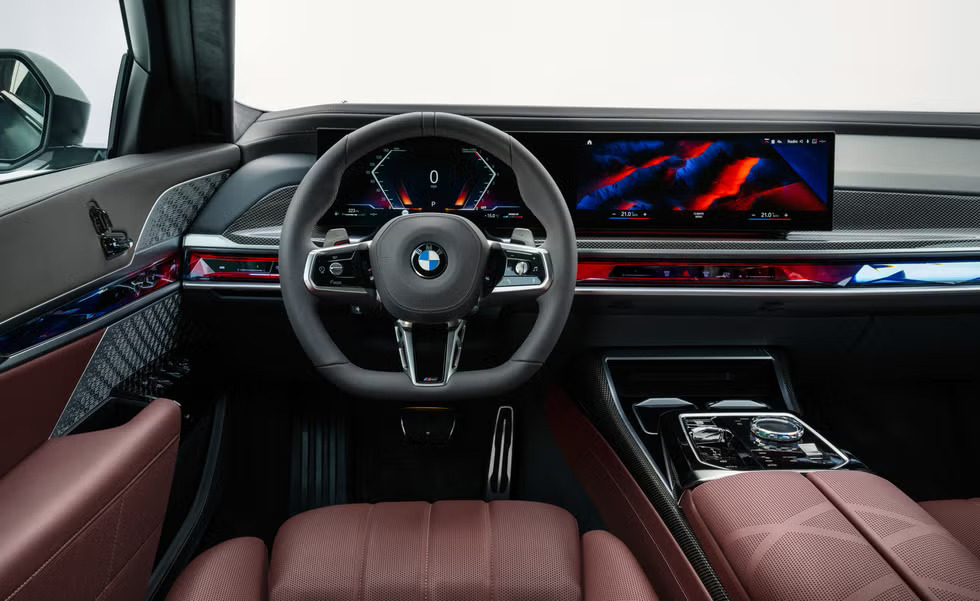When it comes to driving, comfort is crucial — and one of the most significant factors contributing to that comfort is the quality of the seats. Supportive seats can make long drives feel effortless, alleviating pressure on your back and improving posture. On the other hand, poorly designed seats can cause discomfort, leading to back pain and fatigue, especially during longer trips.
In this article, we’ll explore two sides of the coin. First, we’ll highlight five cars with seats that provide excellent support, ensuring drivers and passengers enjoy a comfortable and pain-free experience, whether on short city trips or cross-country journeys.
These vehicles are engineered with thoughtful ergonomics, adjustable seating, and high-quality materials that prioritize comfort.
On the flip side, we’ll also examine five cars that are notorious for causing back pain due to poorly designed seats. Whether it’s insufficient lumbar support, overly firm cushions, or a lack of adjustability, these cars may leave you aching after just a short drive.
The aim is to help you make a more informed choice based on your comfort needs, ensuring that your next ride doesn’t end in a backache.
Also Read: 5 Cars With Great Cost-to-Performance Ratio and 5 That Miss the Mark
5 Cars With Supportive Seats
When it comes to comfort on the road, the seats in your car play a pivotal role. They can be the difference between an enjoyable ride and one filled with discomfort and fatigue.
Whether you’re embarking on a cross-country road trip or simply commuting to work, supportive seats that offer the right balance of firmness, cushioning, and adjustability can drastically improve your experience. In fact, many long-term car buyers prioritize comfort, especially those who spend a considerable amount of time behind the wheel.
Supportive seats are designed to promote good posture, reduce pressure on the lower back, and provide ample cushioning to prevent discomfort. These seats typically include features like lumbar support, adjustable seat backs, and advanced materials that contour to the body, reducing strain on the spine and hips.
Additionally, features like memory foam or multi-way adjustability ensure that the seat fits the driver perfectly, no matter their height or shape.
In this section, we’ll take a closer look at five vehicles that excel in providing top-tier seat comfort. These cars are equipped with ergonomically designed seats that have been praised by both automotive experts and everyday drivers for their ability to reduce fatigue, improve posture, and prevent back pain.
Whether you’re someone who frequently takes long drives or simply seeks a more comfortable commute, these models stand out as the top choices for drivers who prioritize back-friendly seating.
From luxury sedans to well-appointed compact cars, these vehicles offer a range of options for those seeking comfort on the road.
1. Volvo S90
Volvo has built a strong reputation for prioritizing comfort and safety in its vehicles, and the S90 sedan is a prime example of this philosophy. Known for its luxurious, spacious interior, the S90 stands out for its seats, which are widely regarded as some of the most supportive in the automotive world.
What sets the seats in the Volvo S90 apart is their perfect blend of comfort and ergonomic support. The front seats are designed with multiple adjustments, including lumbar support, extendable seat cushions, and memory settings, allowing drivers and passengers to tailor their seating position for maximum comfort.
The seats are made with high-quality materials, including leather and soft-touch fabrics, and they offer a firm yet cushioned feel, ideal for both short commutes and long road trips.
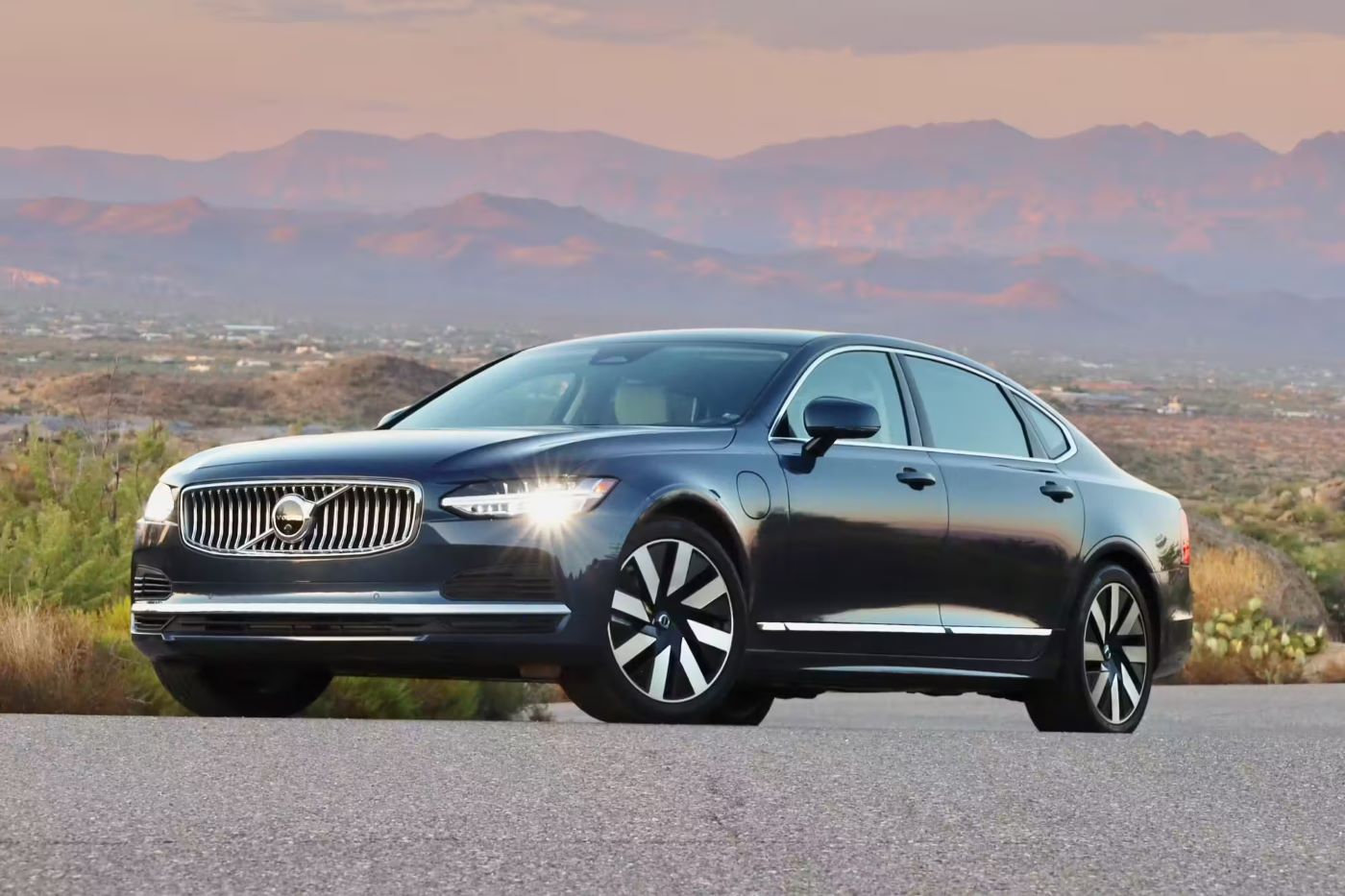
The S90’s seats are also equipped with advanced features like heating, cooling, and massaging functions (in higher trims), which go a long way in reducing fatigue and alleviating pressure on the lower back.
The thoughtful design ensures that the seats promote good posture and minimize stress on the spine, even during extended periods of driving.
In addition to the supportive seats, the cabin of the S90 is well-insulated from road noise, which helps create a peaceful driving experience. The spacious interior, coupled with Volvo’s reputation for comfort, makes the S90 an ideal choice for drivers who suffer from back pain or discomfort during long drives.
If you’re looking for a car that prioritizes seat comfort, the Volvo S90 is a top contender, offering an outstanding combination of luxury, support, and adjustability.
2. Mercedes-Benz E-Class
The Mercedes-Benz E-Class has long been a symbol of luxury, offering a refined driving experience with exceptional attention to detail.
One area where the E-Class truly excels is its seating, which is designed to provide unparalleled support and comfort for both the driver and passengers. Whether you’re navigating city streets or cruising on the highway, the seats in the E-Class will ensure you remain comfortable, even during long trips.
The front seats in the E-Class are expertly crafted to provide superior ergonomic support. They are highly adjustable, offering a wide range of settings for lumbar support, seat angle, and cushion length, allowing drivers and front passengers to find their perfect position.
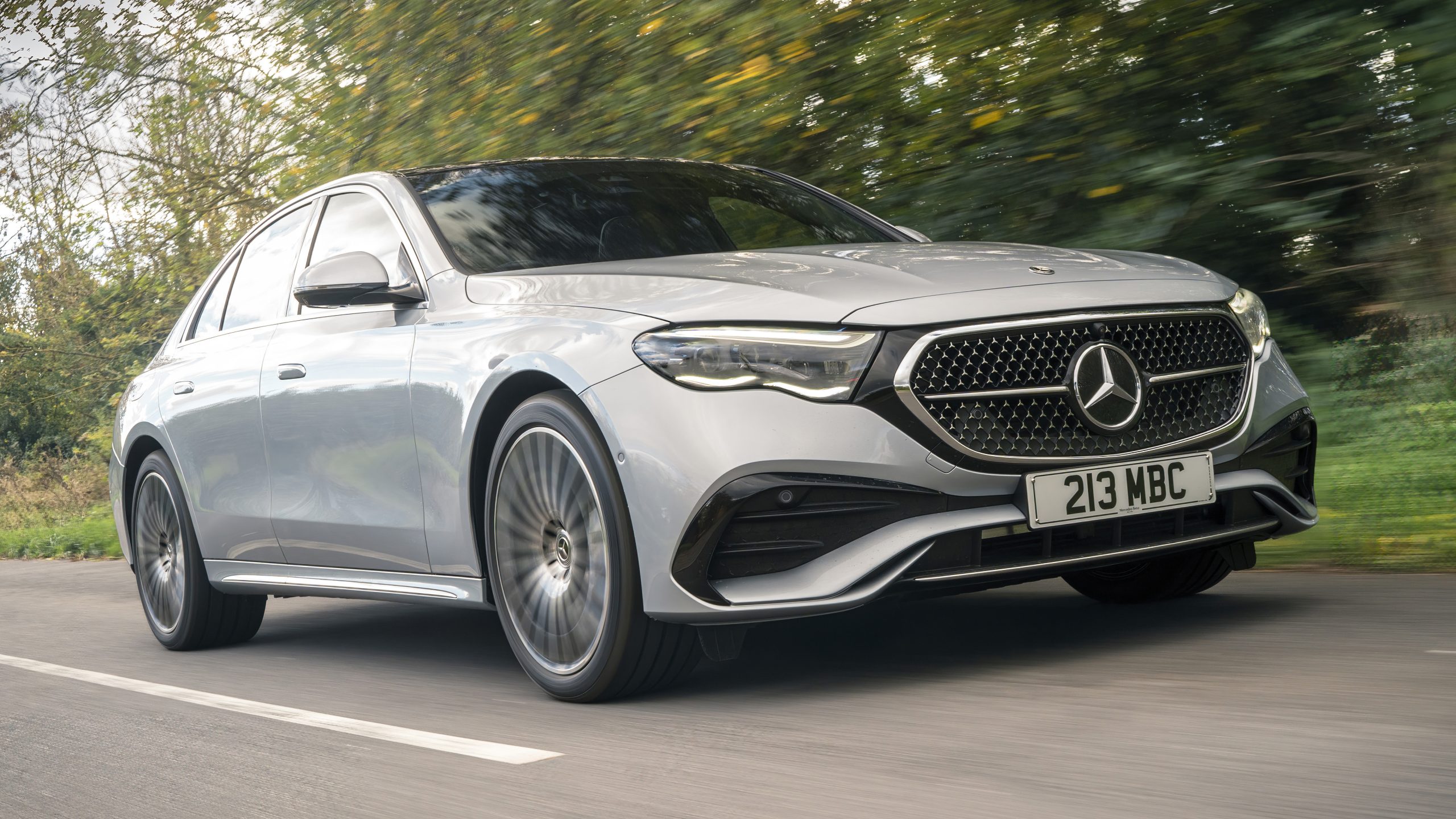
The seats are padded with high-quality materials that offer a combination of firmness and softness, ensuring they provide the right amount of support without feeling too hard or too soft. Additionally, memory functions are available, enabling the seats to remember personal preferences for multiple drivers.
In higher trims, the E-Class takes comfort a step further with available features such as multi-contour seats with massage functions, heating, and cooling, making it easier to stay comfortable in varying weather conditions.
The back support is designed to promote good posture, reducing the chances of developing back pain during long hours behind the wheel.
For those who spend a significant amount of time driving, the Mercedes-Benz E-Class provides a level of seat comfort that is hard to beat. The vehicle’s plush interior, paired with its highly adjustable and supportive seats, makes it an ideal choice for anyone seeking both luxury and ergonomic relief.
3. Audi A8
The Audi A8 is another luxury sedan that excels in offering a driving experience defined by comfort, refinement, and superior seat support. Audi’s flagship sedan is engineered with high-end materials and advanced features, making it a standout choice for drivers looking for both style and ergonomic relief.
The seats in the A8 are not only supportive but also customizable to meet the needs of individual drivers, offering a truly tailored experience.
The front seats of the Audi A8 are equipped with a wide range of adjustments, including adjustable lumbar support, side bolstering, and seat cushion length, which ensure optimal comfort and posture support.
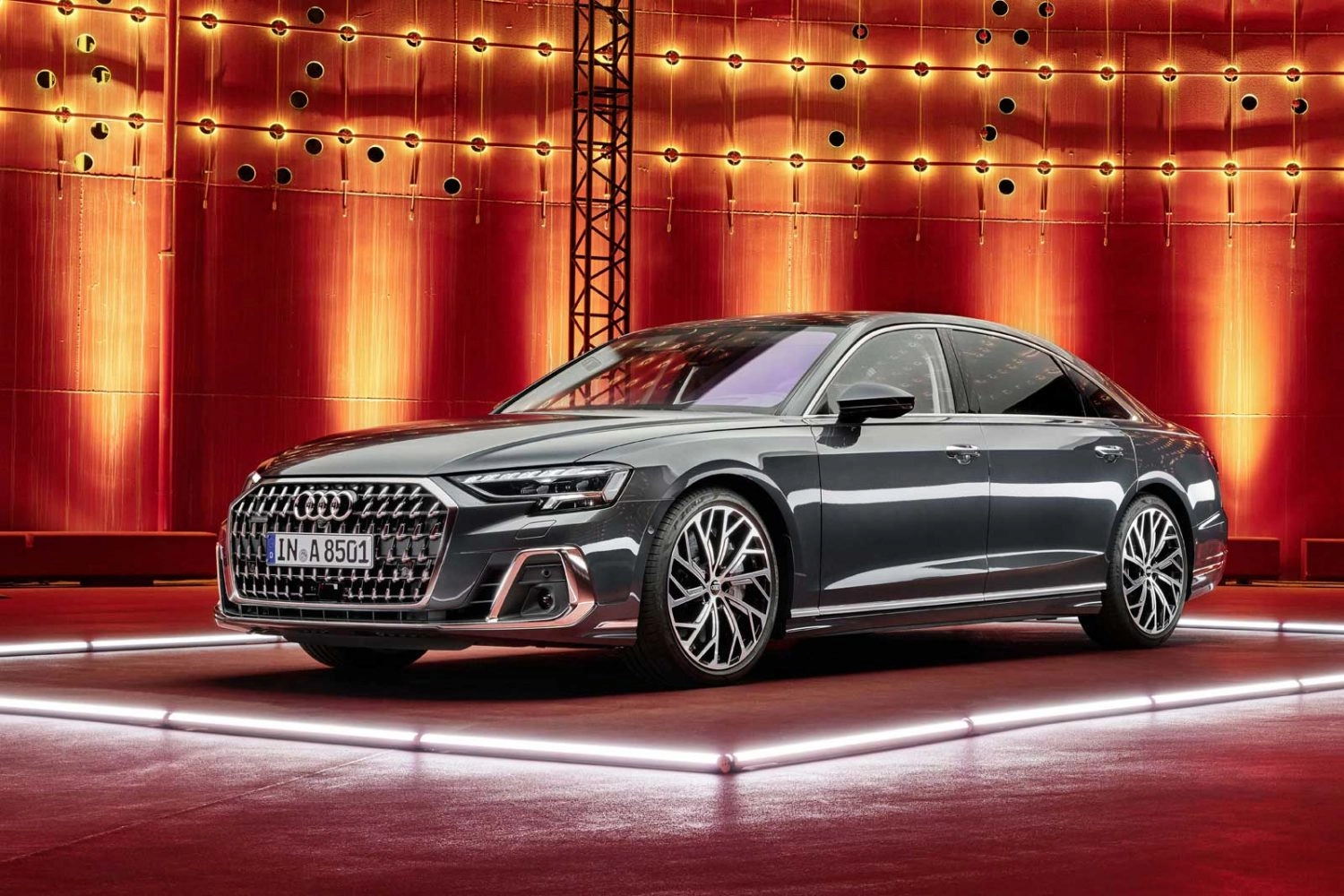
These seats are designed to provide long-lasting comfort on long drives, with just the right amount of firmness to prevent back pain without feeling overly rigid. For those who suffer from back issues, the A8’s seats are a great option, as they offer excellent spinal alignment and reduce fatigue.
In addition to the basic support features, the A8 offers options such as massaging seats and adjustable bolsters, which provide relief during extended periods of sitting. The seats are made with high-quality leather and are designed to offer superior comfort, whether you’re driving or relaxing as a passenger.
Another notable feature of the A8’s seating is its quiet, serene cabin. The seats, combined with soundproofing measures, create a tranquil environment that adds to the overall sense of relaxation, making it a top pick for those who want both luxury and comfort in their car.
With its focus on ergonomic design and luxurious materials, the Audi A8 ensures that both short and long drives are as comfortable as possible.
4. BMW 7 Series
The BMW 7 Series is a true luxury sedan that combines cutting-edge technology, sleek design, and an exceptional driving experience. One of the standout features of the 7 Series is its highly supportive seating, which offers both comfort and superior ergonomics, making it a top choice for drivers who value long-distance comfort.
The front seats of the BMW 7 Series are designed with ultimate adjustability and support. They offer a wide range of adjustments for lumbar support, cushion length, and backrest angle, allowing drivers and passengers to find the perfect sitting position.
The seats are well-padded, providing a firm yet comfortable feel that promotes good posture. This ensures that the driver can enjoy a fatigue-free ride, even during long road trips.
Additionally, the 7 Series features an available “Active Seat” option, which offers massaging functions to further enhance comfort. The seat surfaces are made with premium materials like high-grade leather and plush fabrics, which contribute to a luxurious feel. The seats are also equipped with heating and cooling functions, providing comfort in all weather conditions.
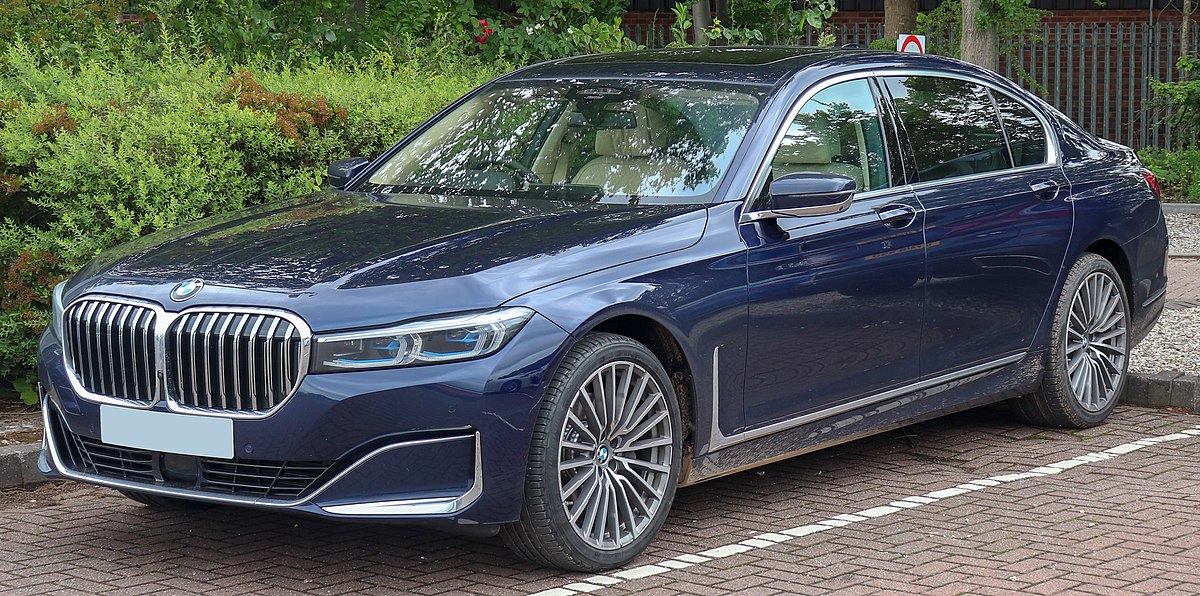
For rear-seat passengers, the BMW 7 Series offers plenty of room and comfort, with plush, supportive seats that rival those in the front. The seats are highly adjustable, and the cabin is designed to minimize stress on the back, offering a relaxing experience for passengers, especially on long journeys.
Overall, the BMW 7 Series is a fantastic choice for those who want a luxury car with a focus on comfort and supportive seating, making long drives feel effortless.
5. Lexus LS
The Lexus LS is a luxury sedan that has earned a reputation for combining refined design, top-notch technology, and exceptional comfort. Among its many impressive features, the seats in the Lexus LS stand out for their superior support and comfort, making it a prime choice for those who prioritize a relaxed and supportive driving experience.
The front seats of the LS are highly adjustable and designed with both comfort and posture support in mind. The 14-way power-adjustable front seats can be customized to fit the driver and front passenger perfectly.
Additionally, the seats offer adjustable lumbar support and a cushion extender to ensure that drivers of all shapes and sizes can find their ideal position. This ensures that the LS provides optimal back support, even on long drives.
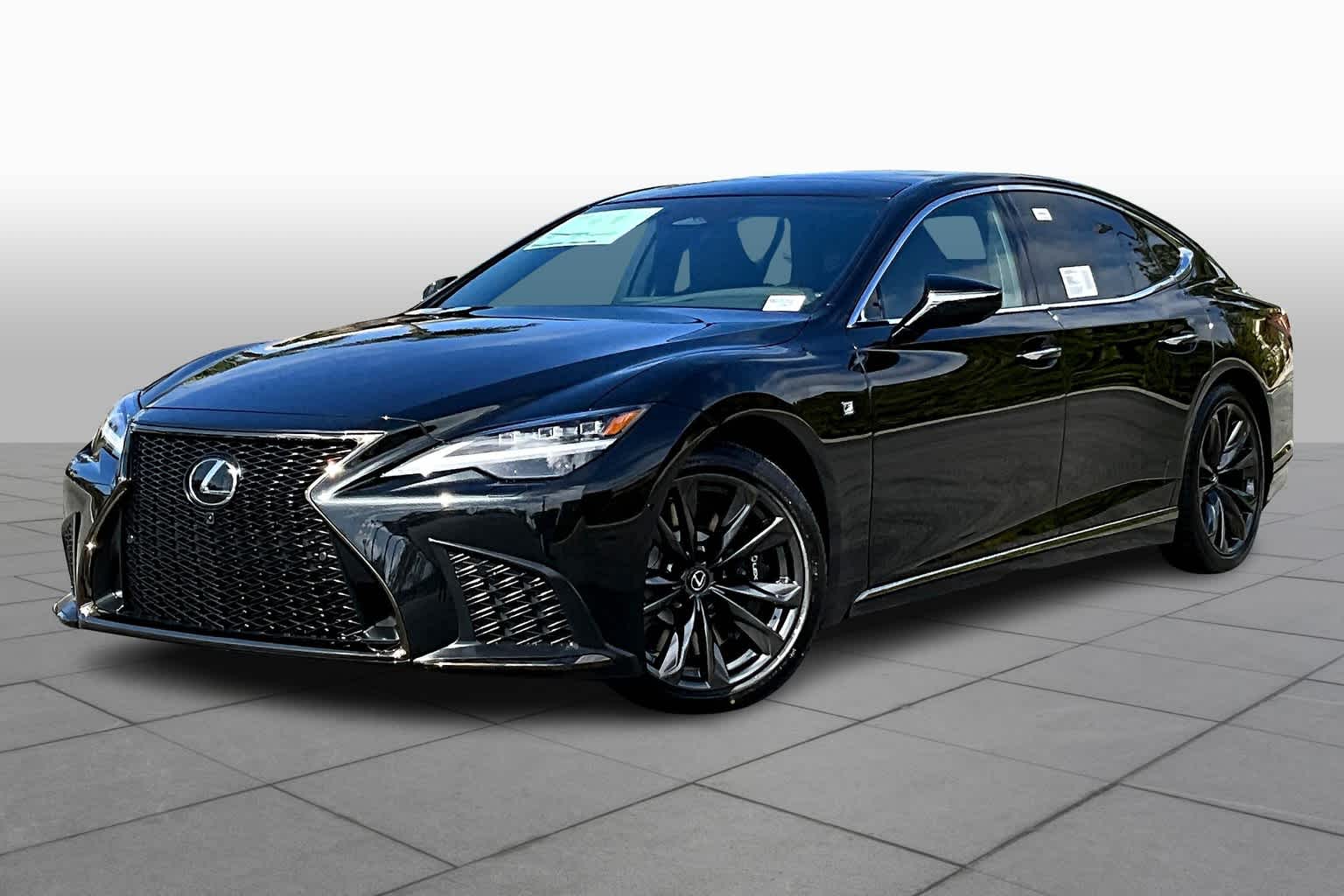
For those looking for even more luxury, the LS offers available features such as massaging seats, ventilation, and heating functions, which further enhance comfort and help reduce fatigue. The seats are covered in high-quality leather and soft-touch materials, offering a plush feel that perfectly complements the luxurious interior of the LS.
In the rear seats, passengers are also treated to ample space and comfortable seating, with features like adjustable backrests and an available ottoman for added relaxation. The seats are designed to provide maximum support, ensuring that long trips in the back seat are just as comfortable as being in the front.
With its advanced seat technology and commitment to luxury, the Lexus LS offers one of the most comfortable and supportive driving and riding experiences available in its class.
5 Cars That Hurt Your Back
While many vehicles offer premium comfort and seat support, not all cars are created equal when it comes to back comfort. For some drivers, long hours behind the wheel can lead to discomfort and pain, especially when the seats lack proper ergonomics and lumbar support.
For people who experience chronic back issues or simply prefer a more comfortable ride, a poorly designed seat can make all the difference between an enjoyable trip and a painful one.
In this section, we’ll take a closer look at five cars that are known to cause discomfort for drivers and passengers due to their poorly designed seats.
These cars often have seats that lack sufficient lumbar support, adjustable features, or cushioning to make long drives bearable. In some cases, the seats may be too firm or too soft, leading to an improper posture that puts unnecessary strain on the back.
The cars featured in this section might appeal to those on a tight budget or those who prioritize other features over comfort, but for individuals who experience back pain or fatigue from sitting for extended periods, these models may not be the best choice.
While they may excel in other areas such as affordability, fuel efficiency, or performance, when it comes to back support, these vehicles fall short.
If you’re prone to back pain or simply value comfort, it’s essential to choose a car with supportive seating. We’ve compiled a list of five cars that often hurt your back to help you make a more informed decision before your next purchase.
1. Nissan Versa
The Nissan Versa is an affordable subcompact car that often attracts buyers seeking a budget-friendly ride with a small footprint. While it’s a great option for those looking to save money, when it comes to comfort, the Versa leaves a lot to be desired, especially for drivers and passengers who struggle with back pain.
One of the primary complaints about the Nissan Versa is its seats, which offer minimal support for long drives. The front seats are quite basic, lacking the necessary adjustability to accommodate a wide range of body types and driving preferences.
The seat cushions are firm, but not in a supportive way — instead, they feel more like a flat surface that doesn’t offer much contouring to the body. This can lead to pressure points, especially on longer trips.
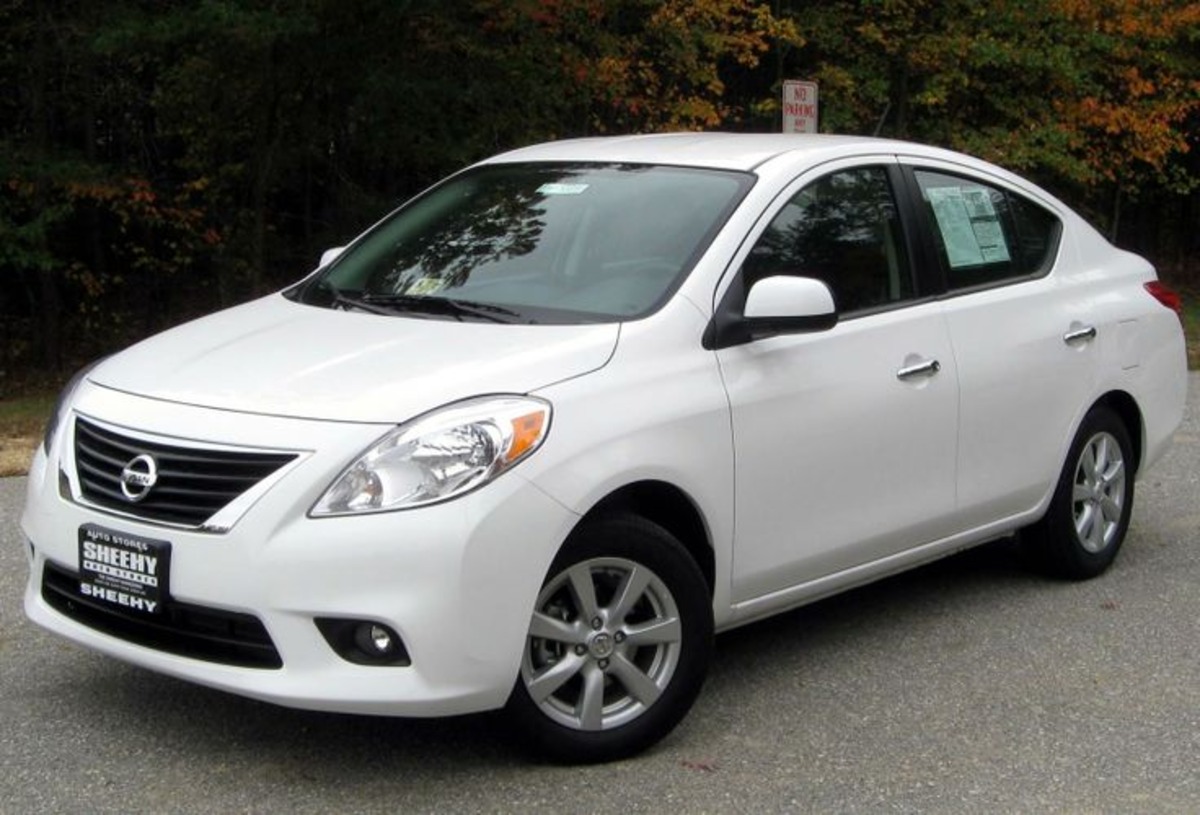
The lumbar support is also lacking in the Versa, and without adjustable seatbacks or a more dynamic seating system, many drivers find themselves slumping or sitting in awkward positions, which can exacerbate back pain. The seats do not promote proper posture, and over time, this can lead to discomfort, especially for people with existing back issues.
Additionally, the rear seats in the Nissan Versa are similarly uncomfortable. With limited cushioning and legroom, passengers may feel cramped, and there’s little in the way of support, making long drives unbearable for anyone sitting in the back.
For those who prioritize comfort and back support, the Nissan Versa may not be the best choice. While it’s an excellent value for money, its seats and interior design aren’t suited for people who suffer from back pain or need more ergonomic support.
2. Kia Rio
The Kia Rio is another compact car that attracts buyers with its affordability and efficiency. While it excels in being a practical city car, it falls short when it comes to providing a comfortable driving experience, particularly in terms of back support.
The seats in the Rio, although functional, are not designed with long-term comfort or ergonomic support in mind, which can result in back pain during extended drives.
One of the primary issues with the seats in the Kia Rio is their lack of adjustability. While the front seats are manually adjustable, they offer limited options when it comes to lumbar support or fine-tuning the seat position to suit individual preferences.
The seats themselves are on the firmer side, but not in a way that provides the necessary support for the lower back. Without adequate contouring, drivers and passengers may find themselves shifting frequently in search of a more comfortable position.
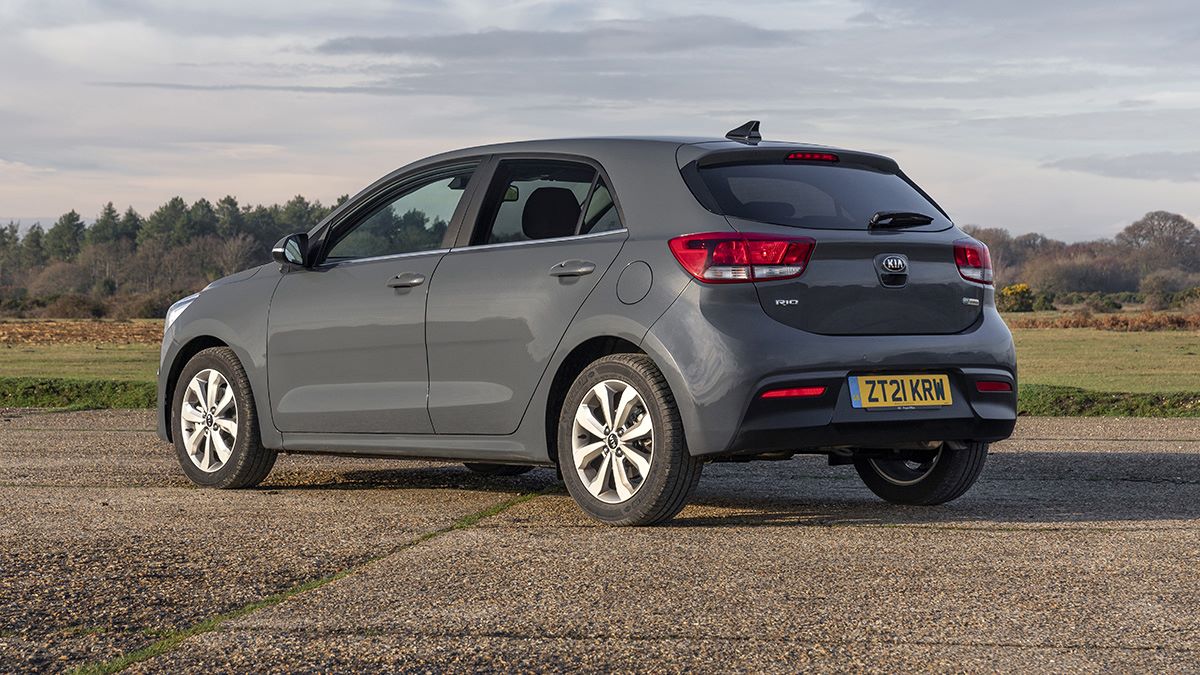
The Rio’s seats also lack advanced features like power lumbar support or memory settings, which can be found in higher-end models.
This makes it harder for drivers to achieve a posture that prevents strain on the spine. The lack of proper back support can lead to discomfort, particularly on longer trips where sitting for extended periods is unavoidable.
In addition, the rear seats of the Kia Rio are similarly uncomfortable, offering limited legroom and insufficient cushioning for passengers. This means that both the driver and passengers may experience back discomfort, especially on longer journeys.
For anyone with existing back issues or who frequently drives long distances, the Kia Rio’s seating might not provide the level of support and comfort needed to make the ride pain-free.
3. Chevrolet Spark
The Chevrolet Spark is another subcompact car that tends to attract budget-conscious buyers. While the Spark is an efficient and affordable option for urban driving, its seats are far from ideal for those seeking long-lasting comfort.
Unfortunately, this model has a number of design flaws when it comes to supporting the back, which can lead to discomfort and even pain for drivers and passengers.
The front seats in the Chevrolet Spark are basic and lack the adjustability needed to provide sufficient lumbar support. The seat cushions are relatively flat and do not offer the contouring necessary to alleviate pressure points on the lower back.
The lack of lumbar support is especially problematic for drivers who suffer from lower back pain, as the seats fail to properly align the spine. Without this essential feature, the car encourages poor posture, which can result in discomfort on both short and long trips.
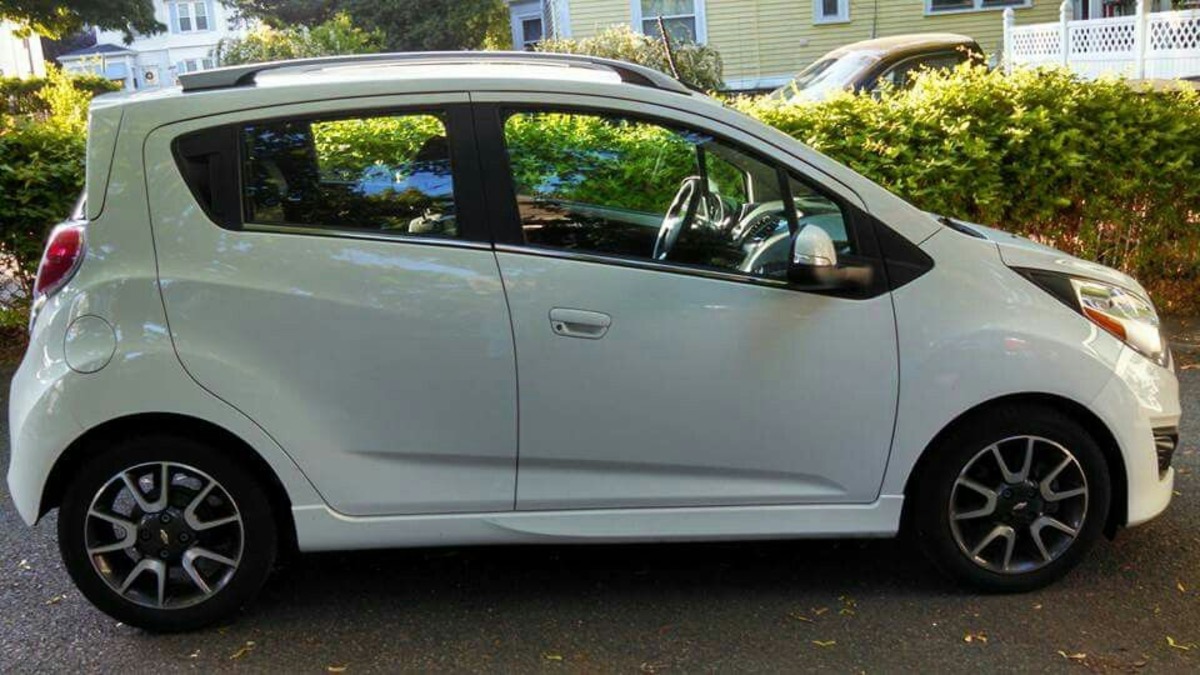
The seats are also quite firm, and while some may consider this ideal for providing support, the Spark’s firm seats don’t offer the necessary softness and cushioning for long-term comfort. For those who drive frequently, this lack of proper padding can quickly lead to aching backs and tight muscles.
Additionally, the rear seats in the Chevrolet Spark offer minimal legroom and lack substantial cushioning. Passengers sitting in the back may feel cramped, with little support to relieve pressure on their backs. For a compact car, the Spark’s interior falls short in terms of passenger comfort, making it a less-than-ideal option for anyone who values back support.
If you have existing back issues or often take longer trips, the Chevrolet Spark might not be the most comfortable choice, as its seating design does not prioritize ergonomic support.
4. Hyundai Accent
The Hyundai Accent is a popular subcompact car, appreciated for its affordability and practicality. However, despite its many strengths, it falls short when it comes to providing adequate back support.
The seats in the Accent are generally regarded as firm and lacking in essential features that would make them comfortable for extended periods of driving.
One of the main issues with the Hyundai Accent’s seats is the lack of adjustability. While the front seats are manual, they offer only a few basic options for seat positioning.
The lumbar support is minimal, and there’s no power-adjustable option to fine-tune the seating position, which can be problematic for drivers who require specific adjustments to avoid strain.
For people who suffer from lower back pain or discomfort, the absence of proper lumbar support can make even short trips feel painful.
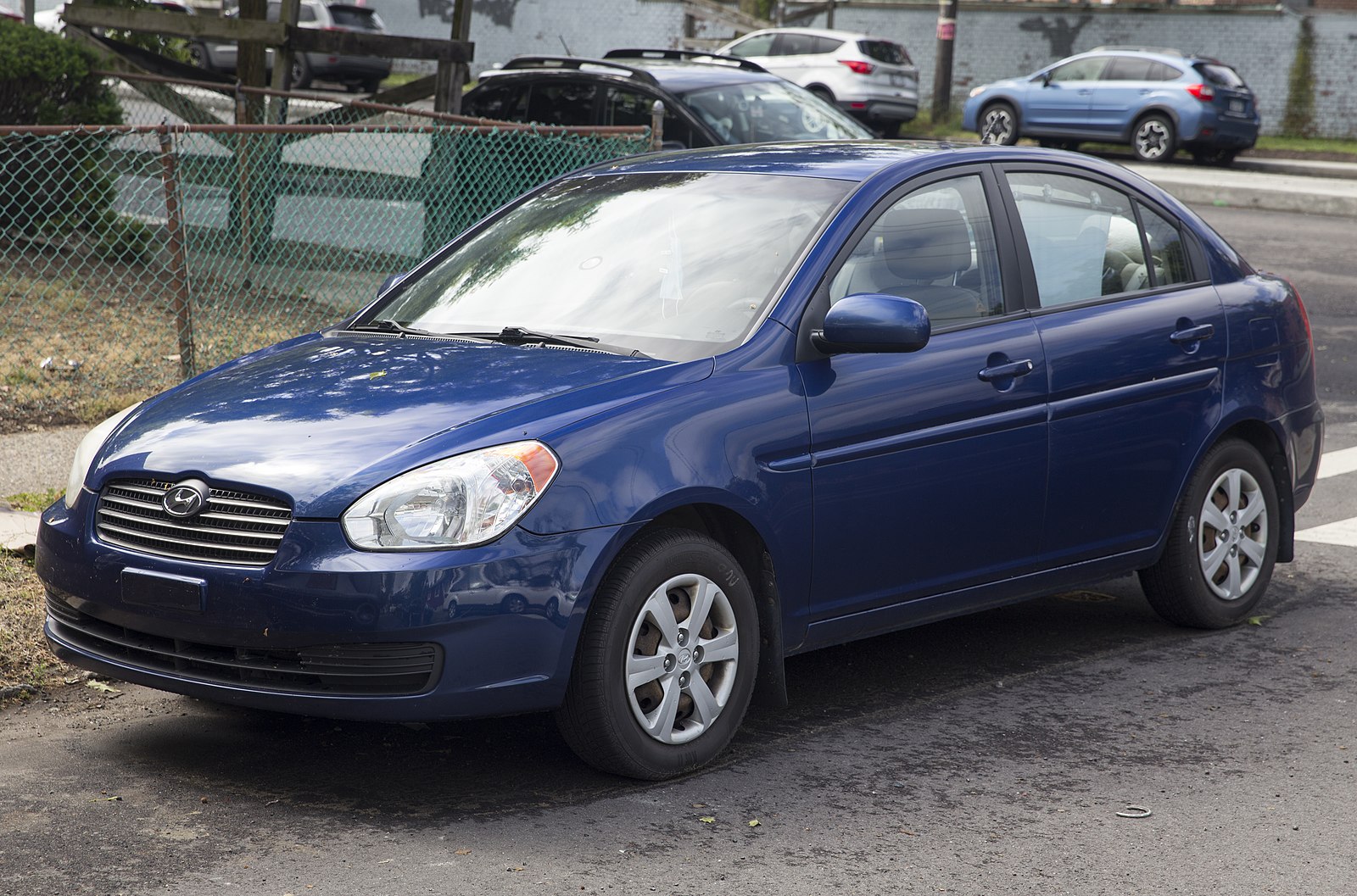
The seat cushions in the Accent are also relatively flat and do not contour well to the body. This lack of ergonomic support can cause pressure points, particularly on the lower back, leading to discomfort and fatigue.
While the firmness of the seats may be suitable for some drivers, it does not offer the necessary cushioning or contouring that helps prevent back pain during long commutes or road trips.
The rear seats of the Accent are also quite basic, offering limited legroom and minimal support for passengers. This can lead to discomfort for those sitting in the back, especially on longer journeys, as there’s insufficient padding to provide adequate support.
Overall, while the Hyundai Accent is an affordable and practical option, its seating lacks the comfort and back support needed for a truly pain-free driving experience, especially for those with existing back issues.
5. Ford Fiesta
The Ford Fiesta is a popular compact car known for its sporty feel and budget-friendly price tag. However, when it comes to comfort, particularly in terms of back support, the Fiesta does not perform as well as other vehicles in its class.
While the Fiesta’s lively performance and affordability make it an attractive option for many, its seats are often criticized for lacking the necessary features to provide adequate support for long drives.
The front seats of the Ford Fiesta are basic and lack sufficient adjustability to suit different body types. The lumbar support is minimal, and there are no power-adjustable options available in lower trims, which means that drivers have to rely on manual adjustments that offer limited options.
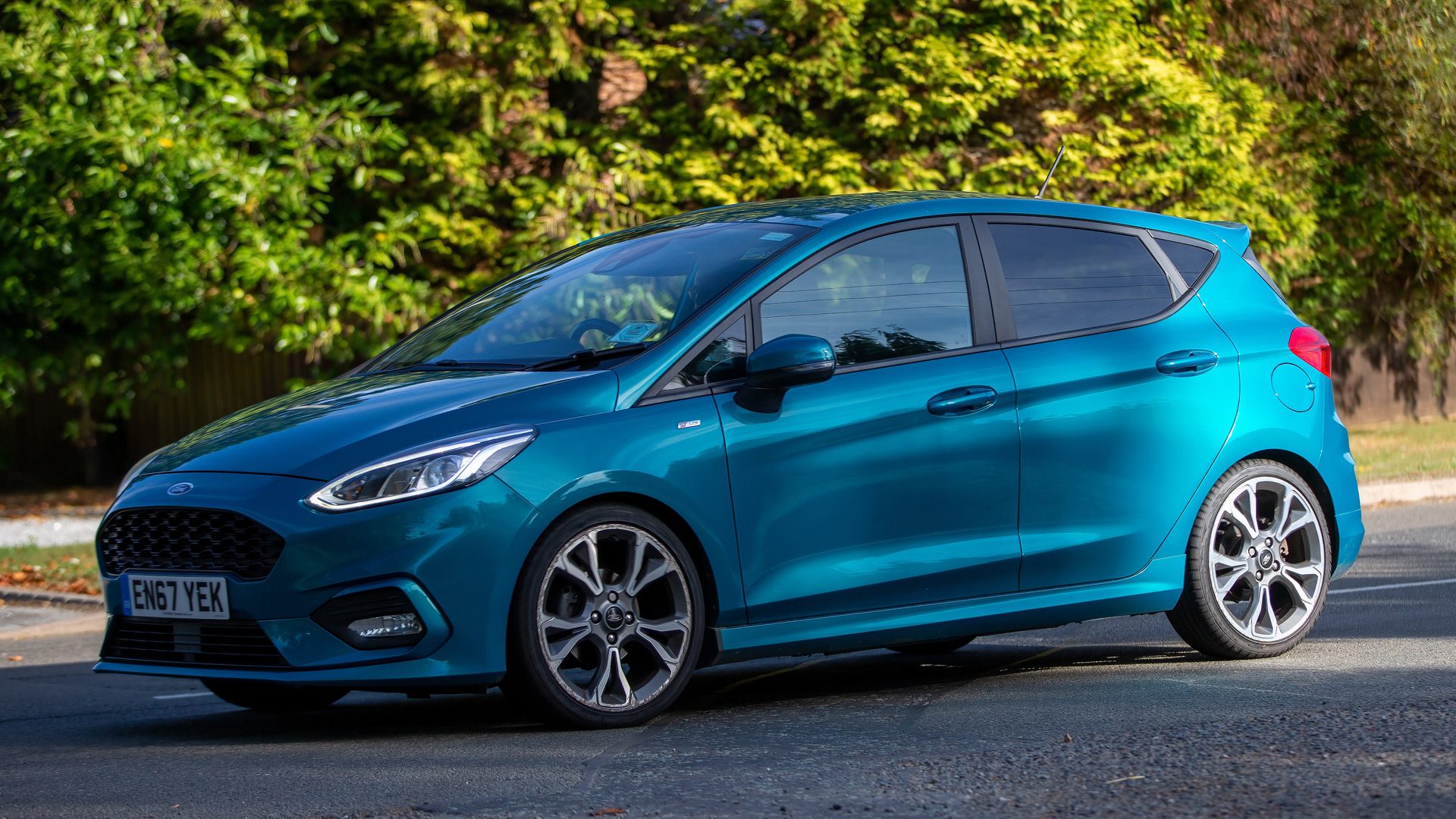
As a result, drivers may find themselves struggling to achieve an optimal seating position, especially if they suffer from lower back pain or discomfort. Without proper lumbar support, the car encourages poor posture, which can lead to pain and stiffness after extended periods of driving.
In addition to the lack of lumbar support, the seat cushions in the Fiesta are fairly firm, and while some may prefer this firmness, it lacks the softness or contouring that would help distribute weight evenly. This can lead to pressure points on the lower back, making the car uncomfortable for longer trips.
The rear seats are similarly cramped and lack adequate cushioning. With limited legroom and minimal support, passengers sitting in the back may feel uncomfortable on longer journeys, contributing to an overall lack of comfort for anyone in the car.
While the Ford Fiesta is a fun and affordable car, those who suffer from back pain or need extra support may find it lacking in terms of seat comfort.
When it comes to choosing a car, comfort should be a top priority, especially for those who spend significant time behind the wheel. The seats in a car are not just about relaxation; they play a crucial role in promoting good posture, preventing back pain, and ensuring that long drives don’t turn into a painful ordeal.
The vehicles featured in this article highlight the wide range of options available, from those that provide top-tier seat support to those that may contribute to back discomfort.
In the first section, 5 Cars With Supportive Seats, we explored vehicles that prioritize back comfort. From the luxurious Volvo S90 to the tech-forward Audi A8, these cars excel in providing seats that are ergonomically designed to offer lumbar support, reduce pressure points, and provide a customizable seating experience.
These vehicles cater to drivers who value both comfort and long-term back health, making them ideal for those who regularly embark on extended journeys or suffer from back issues.
On the other hand, the 5 Cars That Hurt Your Back section highlighted affordable subcompact vehicles that, despite their low price and practicality, often compromise on seat support.
The Nissan Versa, Kia Rio, Chevrolet Spark, Hyundai Accent, and Ford Fiesta may be appealing choices for budget-conscious buyers, but their basic, flat seats and lack of lumbar support can lead to discomfort and even pain during long trips.
For those who experience chronic back pain or seek better ergonomic seating, these cars may fall short in providing the comfort needed for an enjoyable driving experience.
Ultimately, when choosing a car, it’s important to consider how the seats will affect your overall comfort. Investing in a vehicle with supportive, adjustable seats can make all the difference, not only for your back but for your overall driving experience.
Whether you’re seeking luxury or simply a more comfortable ride, there are options available to suit every need and preference.
Also Read: 5 Cars That Feel Zen and 5 That Constantly Annoy Your Ears

